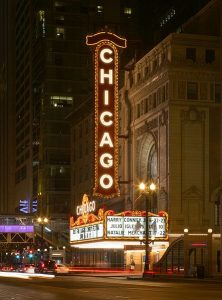 For a long time gun control advocates have been looking for a test locality that would finally confirm to them that access to firearms does not lead to a reduction to crime. Chicago is as good a place as any when it comes to highlighting the contradictions between gun access and crime rates. The first part of this examination must go back to an assessment of whether the gun laws in the state are strict or even stricter than usual when one compares them with the rest of America. Critics are quick to brand the state a Mecca of gun laws whereas state officials are at pains to present their interventions as not only being sensible, but ultimately being essential to the maintenance of good order within the state. As is often his way, Donald Trump has opted to strip down the complex arguments into a sound byte for his presidential campaign, calling Chicago a “disaster” with the “single toughest gun laws.”
For a long time gun control advocates have been looking for a test locality that would finally confirm to them that access to firearms does not lead to a reduction to crime. Chicago is as good a place as any when it comes to highlighting the contradictions between gun access and crime rates. The first part of this examination must go back to an assessment of whether the gun laws in the state are strict or even stricter than usual when one compares them with the rest of America. Critics are quick to brand the state a Mecca of gun laws whereas state officials are at pains to present their interventions as not only being sensible, but ultimately being essential to the maintenance of good order within the state. As is often his way, Donald Trump has opted to strip down the complex arguments into a sound byte for his presidential campaign, calling Chicago a “disaster” with the “single toughest gun laws.”
Keeping the Guns Away from Trigger-Happy People
The rationale for the Chicago gun laws was to ensure that nobody had access to guns so that they would not end up shooting one another. Unfortunately, criminals have a tendency not to follow the law, so they went ahead and secured guns illegally. As a consequence, Chicago still has one of the highest levels of gun violence despite the fact that the legislature there has done everything in its power to limit access to guns. Those who favor a liberal approach to gun ownership rules argue that the best remedy is to allow every law-abiding citizen to own a gun so that they can fight back when the criminals attack. By contrast, those who are of the view that there should be significant gun control argue that all this would achieve is a war of attrition in which the public and criminals bought more and more guns. There is no shortage of shooting incidents in Chicago to support or dispute any of the standpoints that are mentioned above.
For their part, the officials in Chicago insist that the state is tough on gang members who lose their guns. They argue that the sanctions for losing a gun are much tougher than the ones for possessing one. When confronted with the shooting statistics, they counter-argue that most of the guns used to commit crimes in Chicago are bought out of state. Therefore the problem to them is not Chicago laws per se, but the sloppy legislative arrangements in other parts of the country. Rahm Emanuel, who is the current Mayor, is in agreement with the Chicago Police Department that the sentences for gun crimes should be upped significantly with particularly aggravating features for those who have previous weapons arrests. Others are more skeptical, arguing that the death penalty itself has not been sufficiently foreboding to prevent homicides in the parts of the country where it is used. In that sense, gun laws are not a foolproof protection against a determined criminal.
Key Milestones for Guns in Chicago
The Supreme Court effectively ended the ban on handguns when they disposed of McDonald v. Chicago in 2010. By 2012 another court read the final rites to the concealed carry ban in Chicago, one of the very last states to still have such a ban. In 2013 Firearm Concealed Carry Act provided new regulations on that matter. In the same year gun registry ended. By 2014 the state’s ban on gun shops was ended by yet another judge. The upshot is that Chicago seems to want to control guns and crimes but is constantly falling foul of the law on this issue. If you are charged with a gun crime in Illinois, you need a skilled lawyer who will give you the best representation possible. Contact David Freidberg Attorney at Law today at 312-560-7100
(image courtesy of Daniel Schwen)
 Chicago Criminal Lawyer Blog
Chicago Criminal Lawyer Blog


